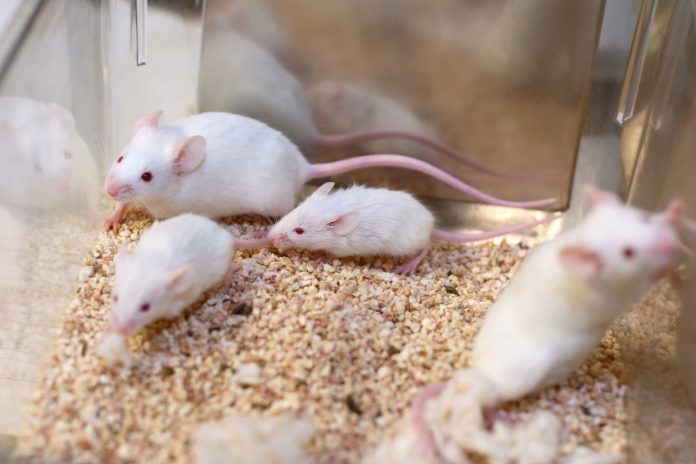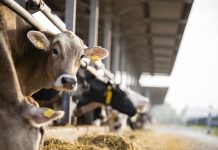Animal protection NGO Cruelty Free International recently presented its manifesto which asks for a phase-out of animal testing at the Houses of Parliament, including animal testing for cosmetics ingredients to be made illegal
Cruelty-Free International launched its ‘Pledge Cruelty-Free’ campaign, which calls for the government to create a plan to phase out animal testing forever, with a minister dedicated to delivering this plan across all government departments. It also asks that homes be made safer by modernising the system and removing animals from the testing of chemicals that go into the products we use every day, such as clothes, household cleaning, furniture, electronic goods, paints and dyes, and food. Finally, it wants the UK’s 1998 ban on testing cosmetics on animals, covering ingredients used both predominantly and exclusively in cosmetics, to be fully reinstated and put into law to protect it from being abandoned by future governments.
The campaign is supported by Cruelty-Free International’s newly published ‘Target Zero’ report (1), which sets out a proactive, targets-based action plan for the phase-out of animal testing, including practical, low-cost, concrete steps that any future government could take in its first term.
Political support for cruelty-free science
The event was sponsored by Henry Smith, Conservative MP for Crawley and Vice-Chair of the All-Party Parliamentary Group for Animal Welfare, who signed the organisation’s pledge to support cruelty-free science.
Also signing the pledge were Diana Johnson, Labour MP for Kingston upon Hull North and Chair of the Home Affairs Select Committee; Sally-Ann Hart, Conservative MP for Hastings and Rye; and Alison Thewliss, MP for Glasgow Central and the SNP Home Affairs spokesperson.
Other MPs in attendance were Chi Onwurah, Labour MP for Newcastle upon Tyne Central and Shadow Science Minister; Sir Roger Gale, Conservative MP for North Thanet and Deputy Speaker of the House; Kerry McCarthy, Labour MP for Bristol East and Shadow Minister for Climate Change; Anna Firth, Conservative MP for Southend West; Jo Stevens, Labour MP for Cardiff Central; and Stephen Timms, Labour MP for East Ham.
Henry Smith MP said: “This report is an important contribution towards our efforts to end the suffering of animals. Ultimately, we all want to see a world where animal testing is a thing of the past, but it’s a big task that requires serious thinking. Cruelty-Free International has set out some concrete steps that we can take towards a phase-out of animal testing, and I strongly recommend that we give them serious consideration.”
Banning cosmetic testing on animals
In May 2023, during a judicial review by Cruelty-Free International of the UK Government’s policy on testing cosmetics ingredients on animals, it was disclosed that the government had secretly lifted the ban on animal testing for cosmetics ingredients that was imposed in 1998. Following legal pressure exerted by Cruelty-Free International, the government partially reinstated the cosmetics testing ban, but it didn’t go far enough. This new ban only covers ingredients used exclusively in cosmetics, whereas the previous ban also covered those used predominantly in cosmetics. Exclusive use accounts for just approximately 20% of the total ingredients used in cosmetics and represents a clear step backward.
In announcing the partial reinstatement of the cosmetics testing ban, the Home Secretary also revealed that “the government is committed to replacing animals used in science wherever scientifically possible” and was “working with industry… to improve safety by the application of new non-animal science and technology.” (2) To honour these two commitments, the government must show political leadership and take steps to accelerate progress.
Do we need to test on animals?
Home Office statistics show that there were over 2.76 million uses of animals in laboratories in Great Britain in 2022. (3) 10% of those are tests required by regulators to assess the safety or effectiveness of chemicals, medicines, and other products.
Yet, despite tests which are meant to keep us safe, the pharmaceutical industry is in a silent crisis: 92% of drugs fail in clinical trials even though they passed extensive pre-clinical tests (including animal tests), which suggested that they were safe and effective. Meanwhile, the rapidly growing availability of non-animal methods, which often outperform traditional animal models, provides an opportunity to drive better outcomes and bring an end to animal suffering in laboratories.
Of the remaining uses of animals in British laboratories in 2022, 45% were in the creation and breeding of genetically altered animals, and a further 29% in basic, curiosity-driven research. Many of these tests, which aren’t required by the regulator and are essentially voluntary, could be removed with minimal impact. This should be one of the first areas to be addressed in a comprehensive government-led plan to phase out testing on animals.
Cruelty-Free International calculates that some 80,000 animal tests could be ended immediately, as they continue to be conducted despite the availability of approved non-animal alternatives. (4)
Dylan Underhill, Head of Public Affairs at Cruelty-Free International, said: “The UK stands at a crossroads in its approach to animal testing. We know that, as a country, we can do so much better. Animal testing touches our lives in many ways that most of us don’t appreciate, from cosmetics and household products to clothes, furniture, plastics, electronic and white goods, paints, dyes, garden fertilisers, and food.
“The government’s attitude towards animal testing has for too long been passive, and tolerant of an outdated status quo. Instead, to stop millions of animals being used in cruel and painful tests every year, we need progress and compassion. The government must do more to promote alternatives and end the use of animals in science, especially when modern innovations in non-animal methods can produce better results, potentially saving lives and resources.”
Animal testing has been a topic of controversy for many years. However, it is still extensively implemented globally to test the safety and efficacy of products. According to recent statistics, China, Japan, and the US are the world’s biggest users of animals in research and testing; 192.1 million animals were used for scientific purposes worldwide in 2015. (5) In 2019, the U.S. Environmental Protection Agency, an independent agency responsible for safeguarding human health and the environment, announced that it would cease conducting or financing studies on mammals by 2035. However, this controversial plan was recently revoked on the grounds that the decision was not based on sound scientific evidence.
Upon the announcement, the EPA became the first federal agency to impose deadline-specific guidelines. The agency provided $4.25 million in additional funding to five US universities to research and develop non-animal testing models to ‘reduce, refine, and replace vertebrate animal testing.’ While it still endeavours to support research into non-animal testing methods, strict deadlines are no longer in place.
References
- A copy of the Target Zero report can be downloaded from the Cruelty-Free International website
- https://questions-statements.parliament.uk/written-statements/ detail/2023-05-17/hcws779
- https://commonslibrary.parliament.uk/research-briefings/sn02720/
- Read more about Cruelty Free International’s ‘Replace Animal Testing (RAT) List’ at https://crueltyfreeinternational.org/replace-animal-tests-uk-rat-list
- https://crueltyfreeinternational.org/about-animal-testing/facts-and-figures-animal-testing#:~:











